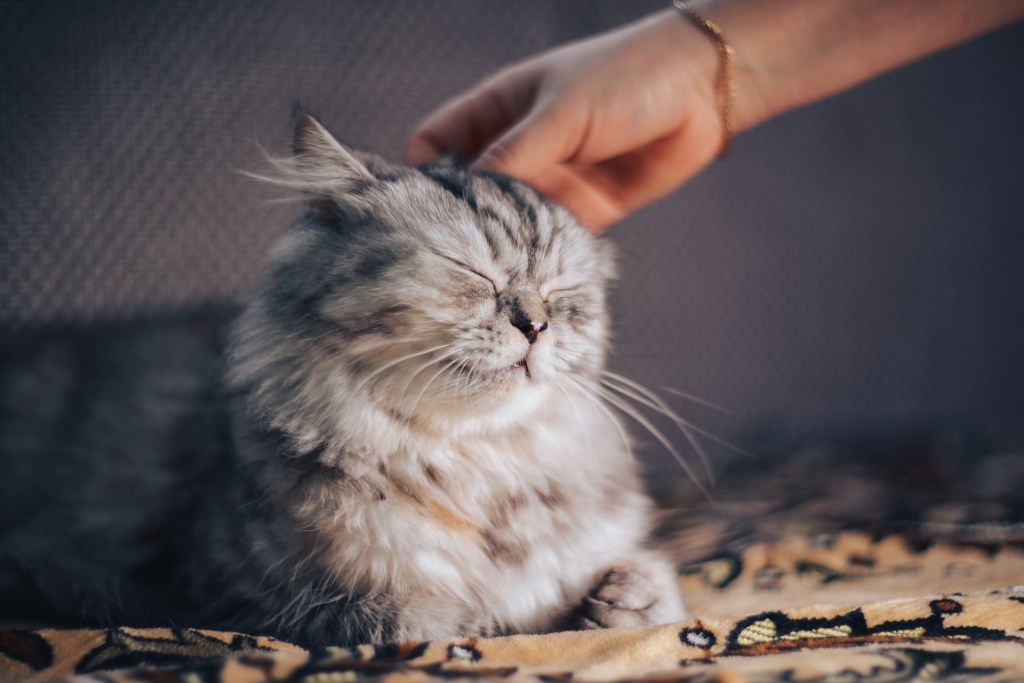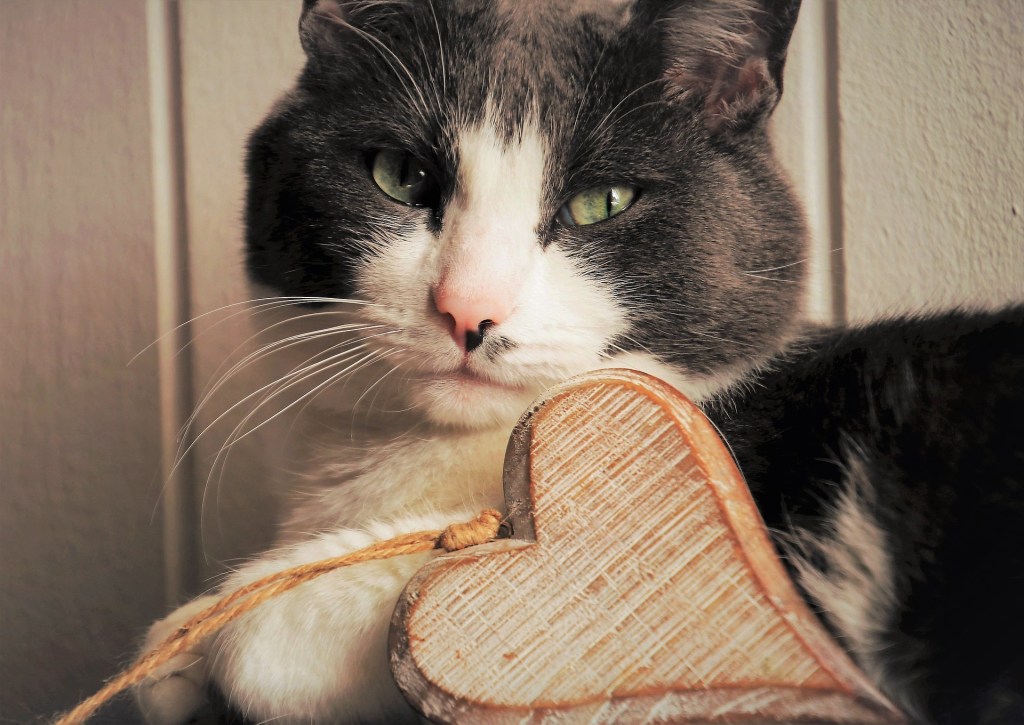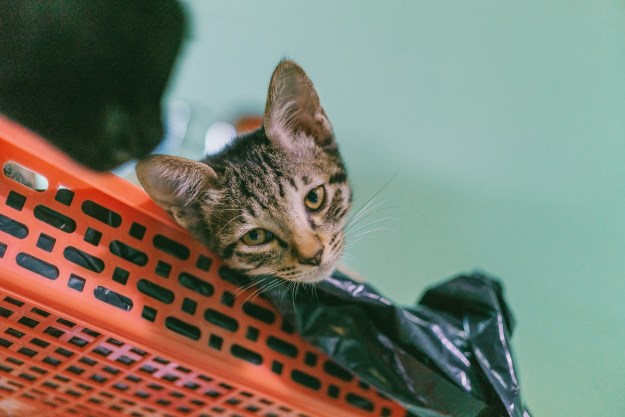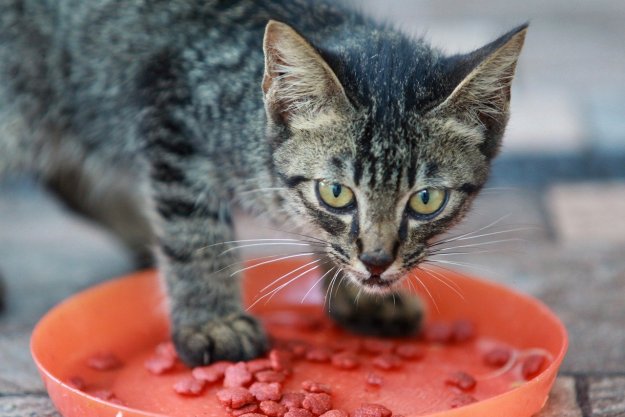You love your cat and view him as a member of your family, but does he feel the same way? Knowing how to tell if your cat loves you can be tricky, since cats don’t communicate love and affection in the same way that humans do. Your cat might appear standoffish and unaffectionate, but chances are he may be showing his love in his own special ways. Learning to recognize those signs can help you to better communicate with and appreciate your cat. If you want to better understand how your cat feels about you, a good place to start would be to recognize the following signs that your cat loves you.

Grooming
If your cat grooms you, chances are he’s accepted you enough to literally try to care for you. Grooming can be a sign of affection, so whether your cat licks your skin or tries to groom your hair, take it as a compliment.
Bringing you presents
That mouse you find on your doorstep—or worse, in your house—might not seem like the most thoughtful gift, but it could be your cat’s way of showing that he appreciates and loves you. A cat who brings you the prey he’s caught may be doing so because he cares for you or is trying to teach you to hunt.
Purring
Cats purr for a variety of reasons, but often, purring is a sign of contentment and is your cat’s way of saying, “Don’t stop what you’re doing.” Your cat might purr when you pat him or when he’s sitting in your lap while you read or watch TV. While purring can also indicate stress, watching your cat’s body language can help you understand if he’s purring out of happiness. Look for signs like relaxed eyes and ears, a quiet or somewhat inactive tail, and actions like leaning into you for a pet to verify that your cat’s purr is a happy purr.
Rubbing against you
According to VetStreet, cats have scent glands on their heads, including under the chin, around the mouth, and on the sides of the face. When your cat rubs his head against you or walks back and forth against and between your legs, he’s leaving his scent behind. Since cats use scent to mark the objects and areas that are “theirs,” your cat is marking you as his territory when he rubs against you. If your cat purrs when he rubs against you, it may indicate that he’s happy and enjoying marking you as his own, too.

Spending time with you
If your cat seeks you out and makes an effort to spend time with you, chances are he’s showing you he really likes you. Cats tend to be solitary by nature, and many cats are perfectly happy to keep to themselves. A cat who follows you from room to room, settles down in a chair near where you’re sitting, or even climbs into your lap and curls up for a nap is showing that he enjoys having you around and is willing to make a little extra effort to be close to you.
How to bond more with your cat
You can also work to bond with your cat so he feels more affectionate toward you. Feeding your cat, petting him, and playing with him are all good ways to show him that you love him.
While spending time with your cat is important, it’s also essential that you learn to respect your cat’s personal boundaries. Your cat may not always feel like being petted, which is fine. Watching his body language, giving him attention when he wants it, and leaving him alone when he wants to be on his own are all good ways to demonstrate your love and respect for your cat.
Understanding what your cat is feeling and trying to communicate often means that you’ll need to watch your cat closely. The more you understand about your cat’s body language, the better you’ll be able to understand how he’s feeling. While it might be tempting to spend as much time as possible with your new cat to bond closely with him, that could be stressful and upsetting for your cat. Instead, watch your cat for signs that he wants to spend time with you, and also give him his alone time when he wants it. The more you respect your cat, the more comfortable he’ll feel around you—and with a little time, the more he’ll appreciate you, too.
Editors' Recommendations
- Why do cats’ eyes dilate? What your pet’s extra big peepers mean
- Cats chirping at birds is totally normal (and here’s why you should encourage it)
- Why do cats twitch in their sleep? The real reasons behind this curious behavior
- Why do cats cover their face when they sleep? This adorable behavior, explained
- Is your cat obese? 5 ways to help them slim down


